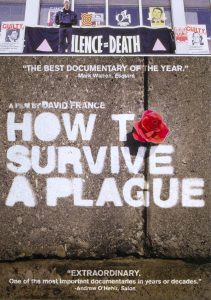 The 2012 documentary How to Survive a Plague tells the riveting and heartbreaking story of the founding and growth of ACT UP (AIDS Coalition to Unleash Power), a central player in the struggle to pressure drug companies and the U.S. government to aggressively pursue a treatment and cure for AIDS. Through rich and intimate archival material — home videos made by the activists themselves, news broadcasts, footage of protests — viewers learn about the men and women who comprised ACT UP, many of whom were sick with the virus themselves, and see, in real time, how their bold civil disobedience was born, cultivated, honed, and mobilized at key moments in the struggle. The filmmakers do not reveal, until the end, who among the original cadre of activists lived to benefit from the discovery of an effective treatment for AIDS; this strategy both makes for incredibly powerful viewing and serves to remind us that the political fight for these activists was literally a matter of life and death.
The 2012 documentary How to Survive a Plague tells the riveting and heartbreaking story of the founding and growth of ACT UP (AIDS Coalition to Unleash Power), a central player in the struggle to pressure drug companies and the U.S. government to aggressively pursue a treatment and cure for AIDS. Through rich and intimate archival material — home videos made by the activists themselves, news broadcasts, footage of protests — viewers learn about the men and women who comprised ACT UP, many of whom were sick with the virus themselves, and see, in real time, how their bold civil disobedience was born, cultivated, honed, and mobilized at key moments in the struggle. The filmmakers do not reveal, until the end, who among the original cadre of activists lived to benefit from the discovery of an effective treatment for AIDS; this strategy both makes for incredibly powerful viewing and serves to remind us that the political fight for these activists was literally a matter of life and death.
For those using this film in the current moment of the coronavirus pandemic, there are lots of rich connections to be made. First, educators might ask students to think about how marginalized groups’ experience of disease is affected by oppressive structures like racism and homophobia. It is fair to say that the homophobia of men like Jesse Helms, Ronald Reagan, and George H.W. Bush killed millions of people as these politicians dragged their feet in addressing a disease that, at first, seemed to be killing mostly gay men. Just as AIDS became inextricably tied to homosexuality, so too did President Trump label coronavirus a Chinese virus, stirring up anti-Asian hatred and spreading misinformation. And just as the poorest people on the globe have been disproportionately killed by AIDS, so too are we seeing outsized numbers of coronavirus infections and deaths among Black and Brown people in the United States. Second, the ACT UP activists sought to democratize the biomedical bureaucracy — drug research, trials, the FDA approval process — so that the people most affected by its decisions could have a seat at the table. Students might think about to what extent working people today in the United States have a voice in determining the priorities of the health care system. One imagines that were nurses and hospital aides given real voice in government, there would be no shortage of PPE. Finally, the film raises a key question for the current moment: What kind of activism do we need for this plague, coronavirus? How to Survive a Plague reveals the nitty-gritty process of organizers hatching actions that match the moment; for students, it might serve as inspiration to consider what actions they might hatch today.
Appropriate for high school classrooms — history, science, language arts.

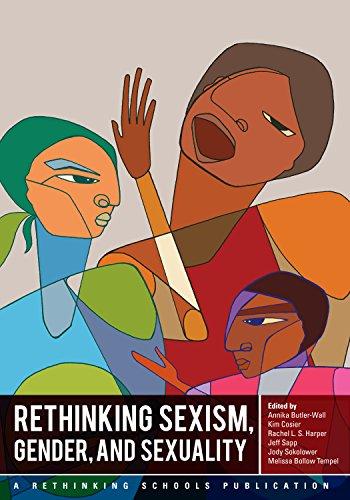
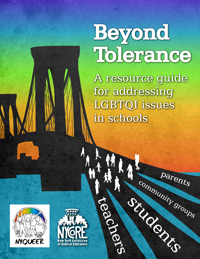
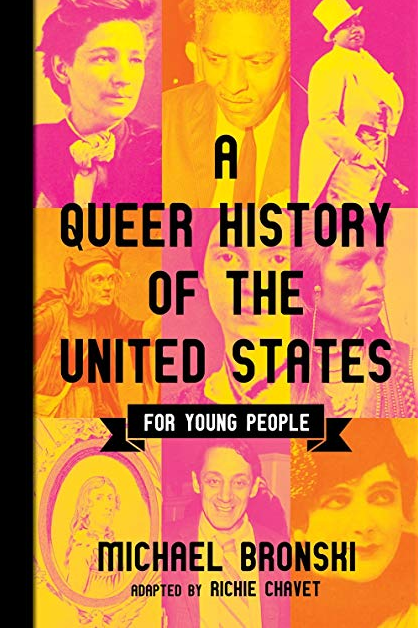
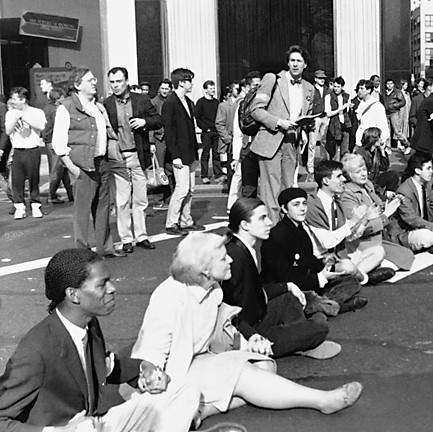






Twitter
Google plus
LinkedIn